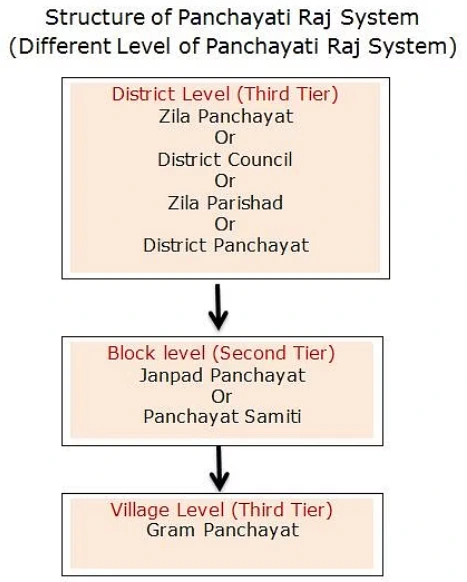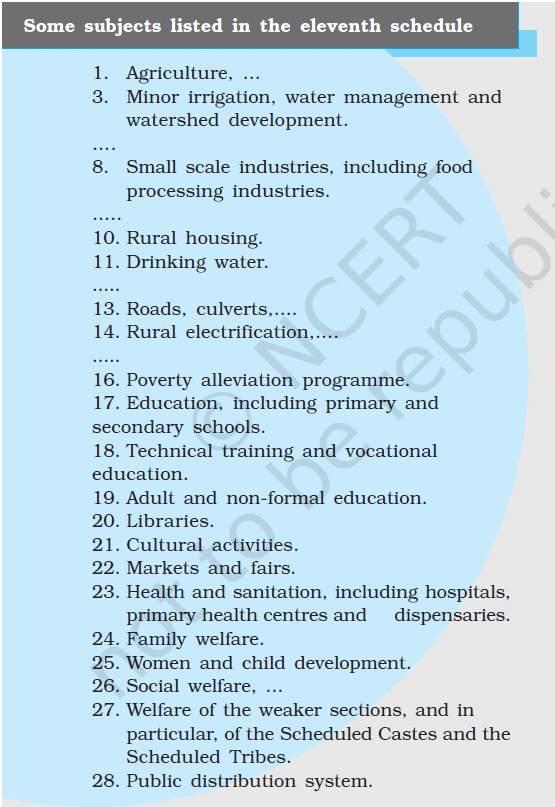![]() 28 Nov 2023
28 Nov 2023
The 73rd Amendment of Indian Constitution aimed at strengthening local self governments and ensuring an element of uniformity in their structure and functioning across the country.

1. Three Tier Structure within Rural Self-Governing Bodies:
The Gram Panchayat
|
2. Gram Sabha: The Vital Role of Gram Sabha and Gram Panchayat
Gram Sabha:
|


Panchayat Extension to Scheduled Areas (PESA) Act, 1996
|
<div class="new-fform">
</div>
